More Bivingsville/Glendale
Civil War Patriots
Story furnished by Clarence Crocker
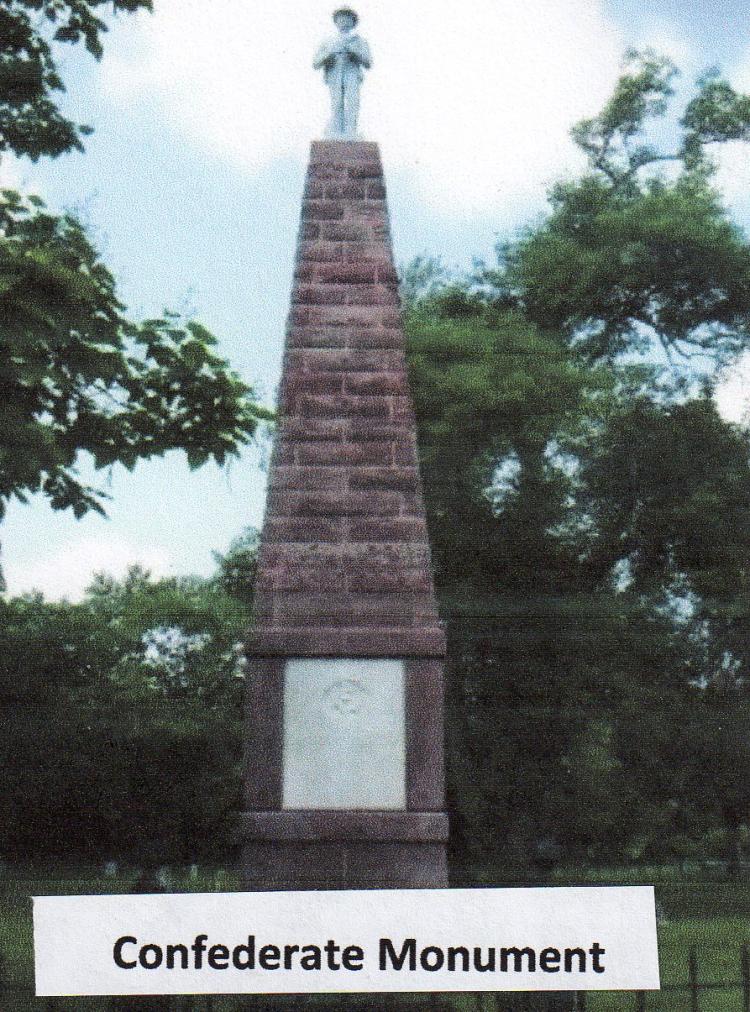
After the Civil war
which began in Fort Sumter, S. C. on April 12, 1861,
following a call for volunteers, it appears that the
little mill village of Bivingsville (Glendale) S. C.
sent its share of men for the cause. Raging until April
9, 1865, it has been estimated that more than 600,000
lives were lost in action on the battlefield and disease
among the troops. While this writer has records of only
a few of the local patriots, I am recording their
service as a memorial to their sacrifices.
With suspicion being
rumored in the Bivingsville community questioning the
loyalty of the two Yankees in their midst, namely Dexter
E. Converse and his brother in-law Albert H. Twitchell
from the state of New York, they volunteered for service
in the Confederate Army. Both were shareholders in the
mill. Mr. Converse was Manager/Superintendent and Mr.
Twitchell was Bookkeeper/Treasurer at that time. Both
joined as privates in Co. C. 13th Regiment. According to
the Converse Family History, since the mill was
manufacturing goods for the Army, wooden shoes and
cloth, Mr. Converse was detailed by the Army to return
to Bivingsville to “superintend the mill”. The name had
been changed to The D.E. Converse Co. and Dexter
Converse was voted President in 1868. (See Presidents for more
information.)
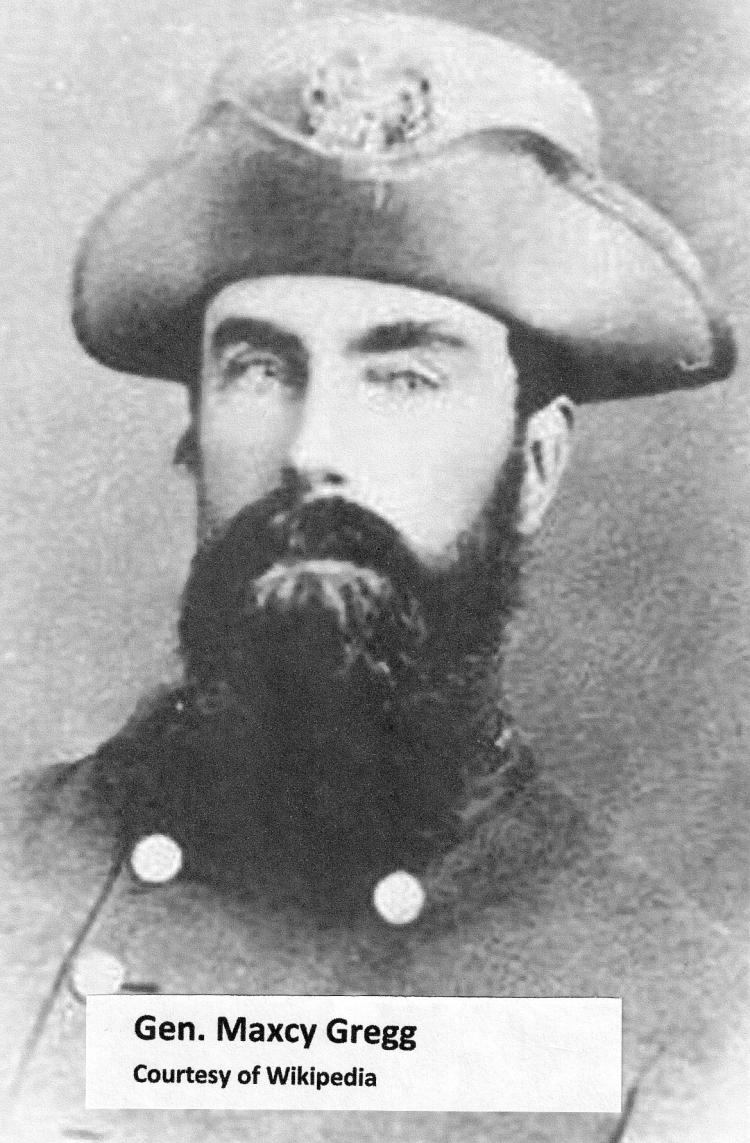
According to the
Dexter Converse family history, Albert H. Twitchell was
detailed to the Quartermaster’s Department in Co. D.
13th Regiment, the Maxcy Gregg Brigade, A. P. Hill
Division. Records which I have seen indicate that the
first S.C. Infantry of Volunteers under the command of
Maxcy Gregg, left for Virginia August 15, 1861. When
arriving in Richmond, the volunteers who had first
signed for 6 or 12 month military duty, almost without
exception, reenlisted for the duration of the war. This
Regiment reorganized again in 1862 and fought in the
second battle of Manassas (August 1862) under the
Command of Col. C. E. Edwards. Reportedly, the flag of
this Regiment is displayed in the State House at this
date. Mr. Twitchell served four years before returning
to Bivingsville and the mill where he was voted
President following the death of Mr. Converse. (See Presidents for more
information.)
Writer’s comments; In that
these men were in the 13th Regiment, I did research on
the 13th Regiment of which I found the following
history. According to the records* which I found, at
the request of Jefferson Davis, President of the
Southern States, Oliver Evans Edwards who had fought
in the 1st battle of Manassas, Va., in July of 1861,
returned to his home in Spartanburg, S. C. and with
the help of others, organized five companies of
soldiers in Spartanburg which were listed as Companies
B. C. E. F. and I.
Going to the camp of
instruction and training in Lightwood Knot Springs
located about 5 miles from Columbia in August 1861, the
various companies of the state were organized into
regiments. Here, the 13th Regiment of S. C. Volunteers
was formed with the Col. Oliver E. Edwards, Lt. Col.
P.I. Calhoun and Maj. T. Stobo Farrow being elected as
its field officers. After about 3 months training, the
Regiment was ordered to the southern coast of S.C.
Following its tour on
the southern coast where it fought in the battle at the
bombardment of Hilton Head by the Federal Fleet, (Nov.7,
1861) the Regiment was sent to Green Pond, S.C. where
the 12th, 13th and 14th Regiments were formed into a
Brigade under the command of Brig. General Maxcy Gregg,
remaining on the coast until it was ordered to Virginia
in April of 1862. ( Maxcy is also spelled Maxey in some
reports)
Arriving in Virginia,
Gen. Maxcy Gregg’s Brigade became a part of A.P. Hill
Division eventually becoming a part of Stonewall
Jackson’s Corp. Following the wounding and death of
Colonel O.E. Edwards, another Spartan, Benjamin T.
Brockman, was promoted to Colonel and took leadership of
the Brigade. Col, Brockman died of wounds on May 12,
1864. After Brockman’s death for the first time since
formation, the 13th Regiment was led by someone outside
of Spartanburg County. Captain Isaac F. Hunt of Newberry
was made Commander and Promoted to Colonel. The 13th
Regiment remained a part of the Army of Northern
Virginia until the end of the war having fought in 21
major battles including the battle of Gettysburg, July
1-3, 1863.
Ref;* The USGENWEB
ARCHIVES PENSON PROJECT; Policy requires this
notation; “These electronic pages may not be
reproduced in any format for profit nor for commercial
presentation by any other organization”
My
Crocker
Relatives in the War
William W. Crocker Sr., this writer’s great
grandfather who lived on Broadway Street in Bivingsville
S.C. at the time of the war had two sons to volunteer
for service in the S. C. Confederate Army of Volunteers,
Anthony Crocker, his 23 year old son and William W.
Crocker Jr., his eighteen year old son. Both joined the
Confederate Infantry as privates in Captain A.K. Smith's
Co, 18th Regiment in 1861.
William W. Crocker Jr.
died from medical problems while in the Laurel Hill
Methodist Church (In Virginia) of which had been
converted into a hospital for the confederate soldiers.
The following Memoriam of which I have a copy, appeared
in the Carolina
Spartan September 4, 1862.
The memorial stated;
Mr. William W. Crocker, aged nineteen, departed from
this life near the city of Richmond on the 1st day of
August 1862. The deceased was a member of Captain A.K.
Smith’s Company, South Carolina Volunteers and while in
health, discharged fully the duties of a soldier with
zeal, fidelity and religious care. “He lived like a
Christian and died satisfied that he would enjoy that
which is prepared for the people of God”. He was buried
at Laurel Hill Church Yard, six miles east of Richmond.
His health had not been very good since he had the
yellow jaundice on the coast, (Hilton Head) though he
was not down, he was able for duty most of the time but
he was not as sound as he was before.
He came to us while we
were out on the big battlefield and stayed with us until
we left Laurel Hill. He was taken down several days
before we left and always continued a strict member of
the Church, attending preaching and prayers, regularly.
In the death of this young soldier, his parents
sustained a heavy and afflictive bereavement. Around
their fireside spreads a gloom, deep as midnight
darkness though illuminated by hope that their son is
translated to a bright and happier world. Sincere in his
friendships, ardent in feelings and kind in disposition,
he was loved and esteemed by his co-patriots. To his
sorrowing parents, brothers, sisters and friends, we
would say; “Be of good cheer, your loss is his eternal
gain as he died clad in the armor of the Christian and
his Christ.”
Writer’s
comments;
the forgoing memorial of William W. Crocker and the
following obituary of Anthony Crocker, both of which I
have copies, were taken from the local newspaper at the
time of their death and preserved by their family.
William was buried in an unmarked grave in the grave
yard located at the side of the church. Both were
survived by; their parents, William W. Crocker Sr. and
Nancy Crocker; three sisters, Angeline who married
Robert Tuck, Mollie Elizabeth who married Joe Brown, the
Local postmaster and Susan who never got married; one
brother, Albert W. who married Liza Frances Morris, this
writers grandparents.
The obituary of
Anthony Crocker stated;
Anthony Crocker
volunteered his services to the Co. B, 18th Regiment of
S.C. Volunteers under Captain A.K. Smith in December
1861 and entered Camp at Coosawhatchie, Beaufort Dist.
S.C.(Coosawhatchie was listed as capital of Beaufort
County) While on the coast he was ever ready for duty of
every kind; no hardships or dangers formed a pretext for
not giving a prompt obedience to every order. In
Virginia during the longest marches, he withstood the
travels, trials and fatigue incidents.
From his Captain he
drew this compliment, “see Anthony Crocker, the smallest
man in the Company bearing a like load, he complains
not, for he had resolution” This remark was made to
those who complained of exhaustion. On the 27th (of May)
Anthony’s Brigade was put in front and after pursuing
the enemy about ten miles they made a stand. Then
General Gregg made a charge and drove in their pickets
and commenced the battle at Coal Harbor.
The 18th Regiment was
under fire from 2 o’clock until night. There Anthony
proved himself a soldier, while the enemy was nearly all
around them, he stood firm and said that he was
determined to stay as long as any man, though bullets
flew thick. Being severely wounded, his arm was
amputated at the shoulder joint without avail. In his
last illness he said that he was not afraid to die.
Death, the last enemy, he met with calmness and
fortitude. He died at Warrenton, Va. and in the grave
yard,(Confederate Veterans) there was decently buried by
his friends. Of him a later writer said; “he was a brave
soldier and gave his life for the liberty of his
country. His name should be honored for he was worthy of
the name of his Grandfather who fought for his
liberty”.
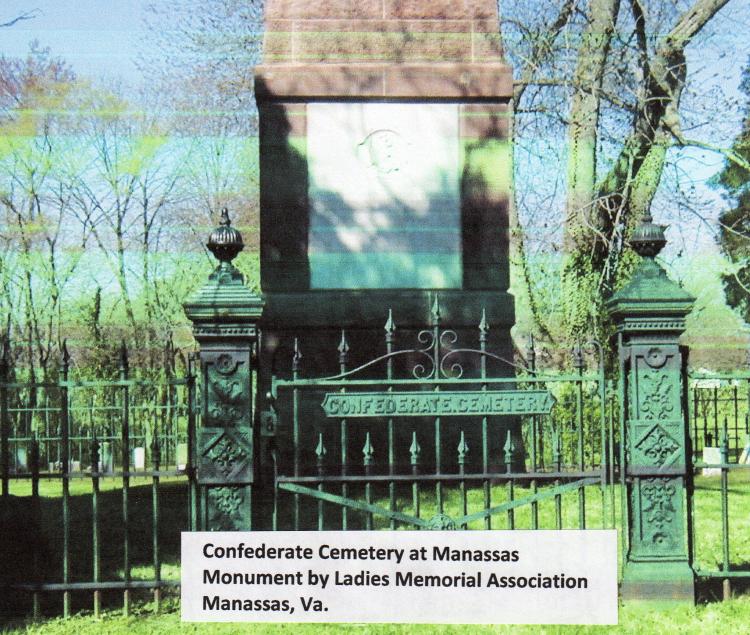
Writer’s comments: Anthony
had been named after his Grandfather Anthony Crocker
who had bravely fought in the Revolutionary War.
According to his obituary, and the history of Cold
Harbor, it appears that Anthony Crocker died from
wounds received in the second battle at Cold Harbor
(1864) and was buried in the Confederate Cemetery.
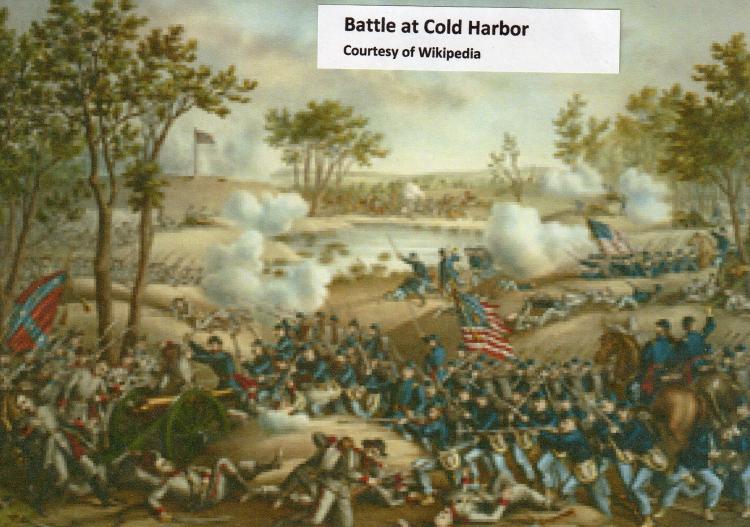
**The second battle of
Cold Harbor took place May 31 to June 12, 1864 with the
most significant battle taking place on June 3rd and was
remembered as American history’s bloodiest and most
lopsided battles. The Union army consisted of 108,000
men while the Confederate Army consisted of 59,000 men.
Over the 13 days almost 11,000 Union soldiers were
killed or wounded with some 3,400 confederate soldiers
being killed or wounded. Ulysses S. Grant was the Union
soldiers Commander and Robert E. Lee was the Confederate
soldiers Commander.
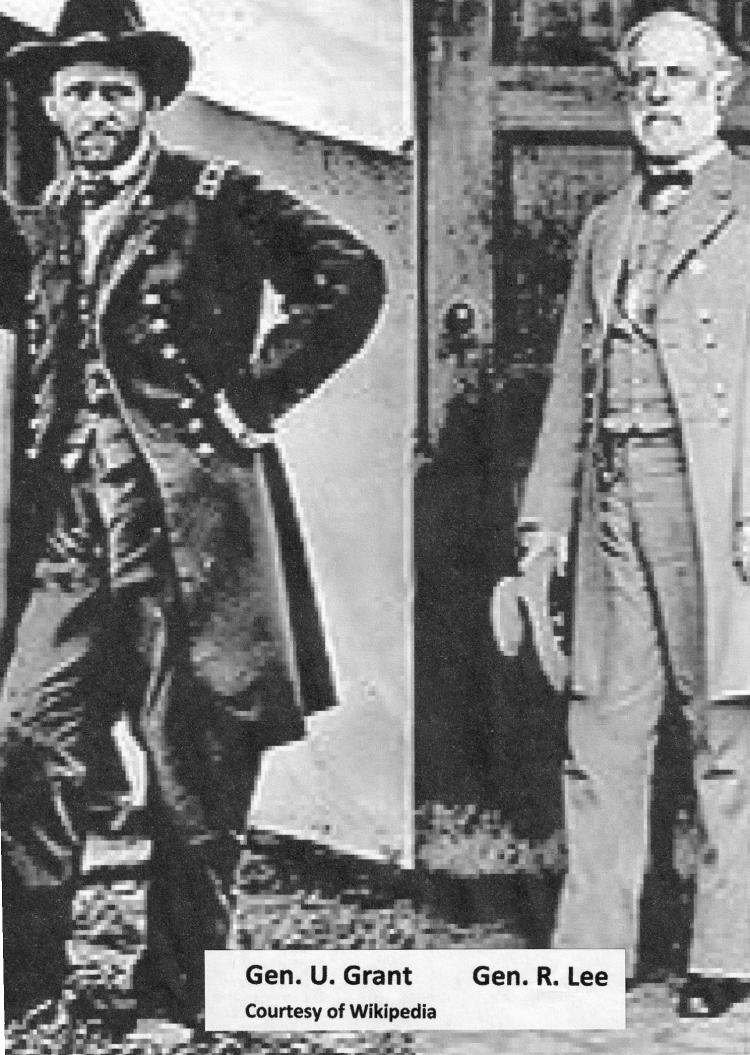
At 4:30 AM on June 3rd
the three Union corps began to advance while massive
fire from the Confederate line quickly caused heavy
casualties with the survivors being pinned down. Later
in the morning the two armies fought in hand to hand
battle. At 7AM Grant advised Meade to exploit any
successful part of the assault. Meade ordered his three
corps commanders to assault at once but all having had
had enough, refused to advance. By 12:30 Grant conceded
that his army was done . Estimated losses in battle that
morning was 3 to 7,000 Union soldiers, no more than
1,500 Confederates. After the battle Grant wrote in his
memoirs, “have always regretted that last assault at
Cold Harbor; no advantage whatever was gained to
compensate for the heavy loss we sustained”. Union
forces launched no more attacks on the Confederate
defense at Cold Harbor.
Ref;** Battle of Cold
Harbor and pictures courtesy of Wikipedia. Other Civil
War soldiers of whom I have records are also shown on
this website; See William A.
Harper and Commodore R.
Lindsey.
Researched,
compiled and written by Clarence E. Crocker, December
2011






